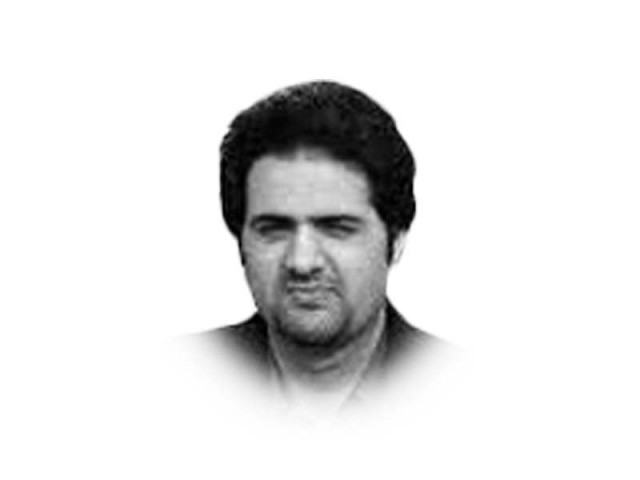Steve Coll’s Directorate is a travesty of justice
It is merely a repetition of the boring, bias laden anti-ISI narrative

Coll describes the ISI as this villain organisation, which is mistakenly and excessively focused on India, which as Coll describes with great subtlety, is a victim of ISI’s ‘nefarious actions’. Coll’s favourite character in the book is Amrullah Saleh, who was the head of the primary Afghan intelligence agency National Directorate of Security until 2007. Saleh more than anything is interested in anti-ISI propaganda. Coll treats his statements as gospel truth.
Saleh is the man who clashed with Karzai for his peace overtures toward the Taliban, an agenda Washington was pursuing secretly through figures such as Tayeb Agha who had direct link to Mullah Mohammad Omar. Peaceful negotiations with the Taliban has been Pakistani advice to the Americans since 2001.
One of Saleh’s fraudulent statements about the ISI is this: They [Pakistan] developed their nuclear bomb under the watchful eyes and smelling nose of the West.” The Pressler Amendment was passed in 1985 and it basically said that military and technology equipment [aid] to Pakistan should be discontinued unless the US president certified that Pakistan did not “possess” or the American assistance would “reduce significantly the risk that Pakistan will possess a nuclear explosive device”. The Pressler Amendment was passed by US Congress in 1985 but it didn’t hit Pakistan until October 1990. This doesn’t sound like the “watchful eyes and smelling nose of the West” but rather wilful ignorance of the West so that Pakistan could help the CIA take its revenge for the KGB inflicted American defeat in Vietnam. So, Saleh and Coll are being disingenuous.
It takes extreme discipline, which American mainstream journalists have mastered through the years, to say that the Afghan quagmire is because of the conspiracies hatched in Aabpara. I wonder what Coll would call invading a nation, changing war aims, and killing countless innocent civilians while occupying their country?
In the chapter Conflict Resolution Cell, Coll talks about General Kayani’s talk before a group of former American policy makers, journalists, and intelligence analysts. There, Kayani basically talks about how Pakistan has paid dearly because of the failed American invasion of Afghanistan.
Kayani argues that Pakistan wants a “peaceful and stable Afghanistan, a friendly Afghanistan”, which Coll treats as code for “Pakistani influence, through the Taliban.” Does America’s “longstanding effort to bring peace and prosperity to Afghanistan”mean code for US influence? Does India want to have a permanent presence in Afghanistan to threaten Pakistan’s security when its leaders talk of timelines.
Coll, in the same chapter, says that Pakistani generals while not acknowledging propping up the Taliban basically argue that this is meant to contain the spillover effects from the violence emanating from Afghanistan instead of telling the truth that they (generals) are using the Taliban for the future ulterior motive of “retaking Kabul”. Those who argue that America’s real ulterior motive in coming to Afghanistan and staying here is the eventual containment of China are rebuffed as conspiracy theorists. But when Pakistan deals with its security issues in the ‘now’ mode and employs strategic manoeuvres, Coll says well the real aim is “retaking Kabul” Eventually. Now, is Coll a conspiracy theorist?
Published in The Express Tribune, November 1st, 2018.
Like Opinion & Editorial on Facebook, follow @ETOpEd on Twitter to receive all updates on all our daily pieces.














COMMENTS
Comments are moderated and generally will be posted if they are on-topic and not abusive.
For more information, please see our Comments FAQ